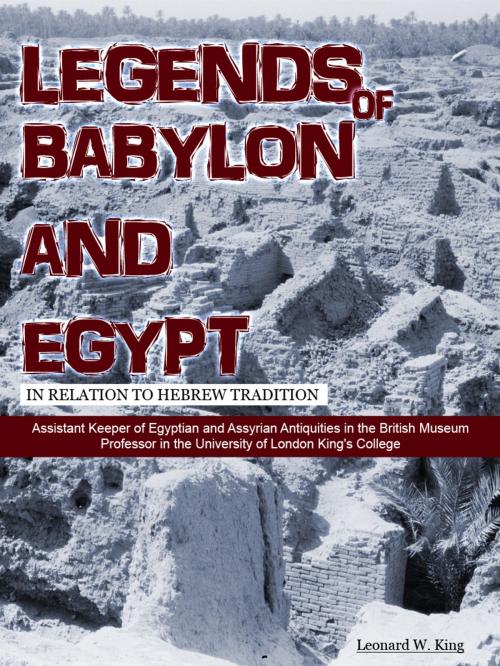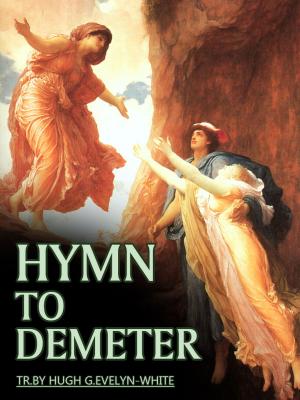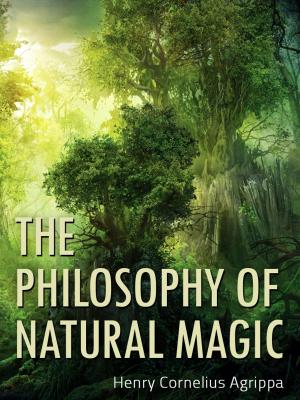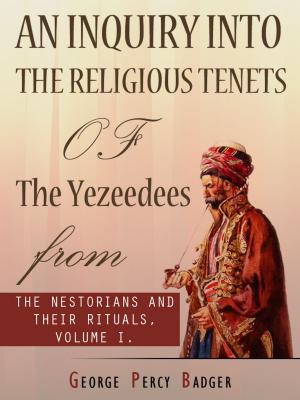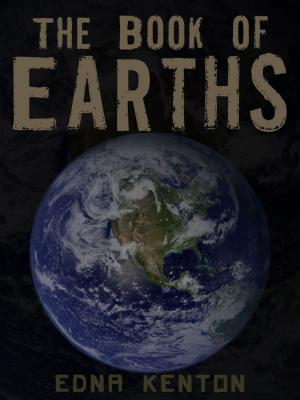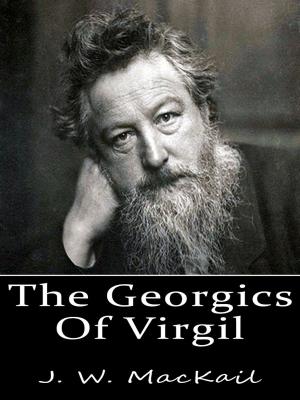Legends Of Babylon And Egypt
Nonfiction, Religion & Spirituality, Inspiration & Meditation, Inspirational, History, Ancient History, Spirituality| Author: | Leonard W. King | ISBN: | 1230000031235 |
| Publisher: | AppsPublisher | Publication: | November 18, 2012 |
| Imprint: | Language: | English |
| Author: | Leonard W. King |
| ISBN: | 1230000031235 |
| Publisher: | AppsPublisher |
| Publication: | November 18, 2012 |
| Imprint: | |
| Language: | English |
Legends of Babylonia and Egypt
by Leonard W. King
Legends of Babylon and Egypt was first published in 1918 under the authorship of Leonard W. King. In these lectures an attempt is made, not so much to restate familiar facts, as to accommodate them to new and supplementary evidence which has been published in America since the outbreak of the war. But even without the excuse of recent discovery, no apology would be needed for any comparison or contrast of Hebrew tradition with the mythological and legendary beliefs of Babylon and Egypt. Hebrew achievements in the sphere of religion and ethics are only thrown into stronger relief when studied against their contemporary background. The bulk of our new material is furnished by some early texts, written towards the close of the third millennium B.C. They incorporate traditions which extend in unbroken outline from their own period into the remote ages of the past, and claim to trace the history of man back to his creation.
Legends of Babylonia and Egypt
by Leonard W. King
Legends of Babylon and Egypt was first published in 1918 under the authorship of Leonard W. King. In these lectures an attempt is made, not so much to restate familiar facts, as to accommodate them to new and supplementary evidence which has been published in America since the outbreak of the war. But even without the excuse of recent discovery, no apology would be needed for any comparison or contrast of Hebrew tradition with the mythological and legendary beliefs of Babylon and Egypt. Hebrew achievements in the sphere of religion and ethics are only thrown into stronger relief when studied against their contemporary background. The bulk of our new material is furnished by some early texts, written towards the close of the third millennium B.C. They incorporate traditions which extend in unbroken outline from their own period into the remote ages of the past, and claim to trace the history of man back to his creation.
